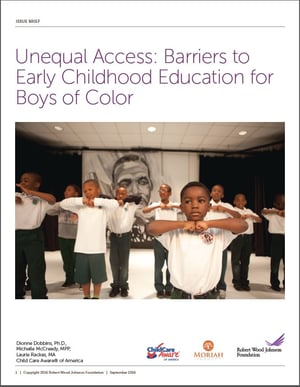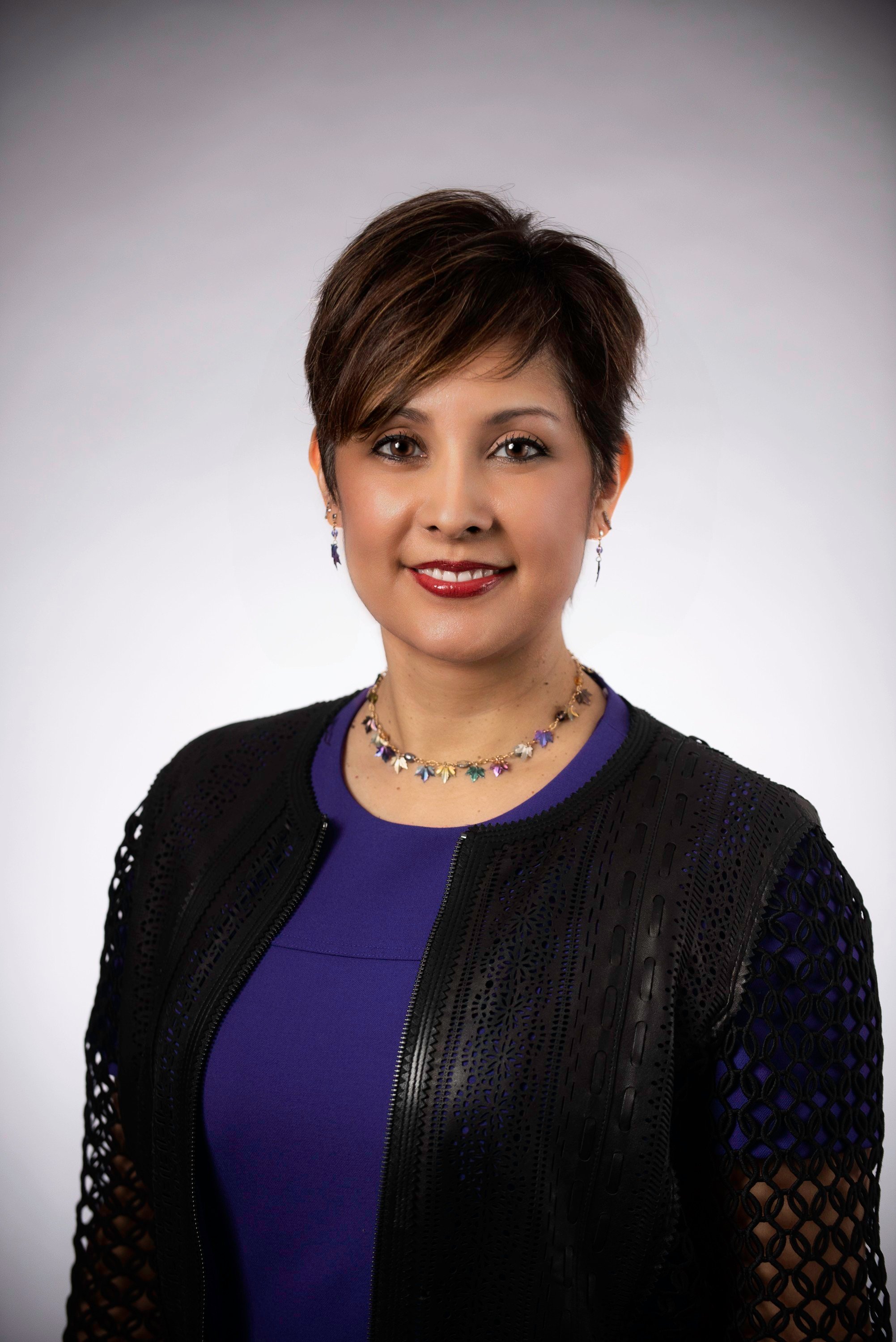 The intended purpose of early education is to help close the school achievement gap by promoting equitable access to the school readiness opportunities afforded by high quality early education. Access means affording all our children the opportunity to enter through the front door of early education, and it also means keeping them from being pushed out the back door.
The intended purpose of early education is to help close the school achievement gap by promoting equitable access to the school readiness opportunities afforded by high quality early education. Access means affording all our children the opportunity to enter through the front door of early education, and it also means keeping them from being pushed out the back door.
– Dr. Walter Gilliam, Child Care Aware® of America Board member
Forty-two percent of African American children under the age of 6 live in poverty. Hispanic and American Indian children are not far behind (34 percent and 39 percent respectively). These figures are more than double the national average for white children under the age of 6.
By age 4, low-income children have heard 30 million fewer words than their more affluent peers. And by fourth grade, the reading proficiency of African American and Hispanic boys falls significantly below that of white boys.
Overall, boys of color (primarily African Americans, Hispanics, and American Indians/Alaska Natives) face structural obstacles that stack the odds against their success in school and in life. They are more likely to grow up in low-income households and less likely to attend high-quality schools starting in very early childhood.
Child Care Aware® of America, in partnership with the Robert Wood Johnson Foundation and The Moriah Group, recently published a report on this important topic. Unequal Access: Barriers to Early Childhood Education for Boys of Color explores the research about why boys of color are disproportionately shut out of meaningful educational opportunities. There are a host of reasons, among them:
- Financial. High-quality early childhood education is one of the most significant expenses in the family budget, and the challenge is greatest for low-income families of color.
- Structural. The supply of free or subsidized child care and Head Start programs does not begin to meet the demand.
- Societal. All of us have and are subject to implicit bias; particularly for boys of color, the negative effects of this bias includes growing up in a society that consistently sends them negative, biased messages about their behavior, identity, and future. That can become a self-fulfilling prophecy. (CCAoA Board member Dr. Walter Gilliam is a leading expert on implicit bias and the author of another brief in this series titled Early Childhood Expulsions and Suspensions Undermine Our Nation’s Most Promising Agent of Opportunity and Social Justice.)
However, when low-income boys of color are able to participate in quality early educational settings, the benefits can be significant to the boys themselves, to society, and to the U.S. economy. Some of the potential long-term benefits include higher test scores, increased high school graduation rates, a greater likelihood of gainful employment, and a decreased likelihood of being incarcerated or using illegal drugs.
Additional information, resources, and the full Unequal Access: Barriers to Early Childhood Education for Boys of Color report can be found at usa.childcareaware.org/boysofcolor.
To learn more about the educational opportunity gap and potential solutions, register for our webinar on October 21 at 3 p.m. EDT where Dr. Dionne Dobbins, CCAoA’s Senior Director of Research, and Dr. Walter Gilliam and will discuss both the unequal access and the early childhood expulsion reports.





